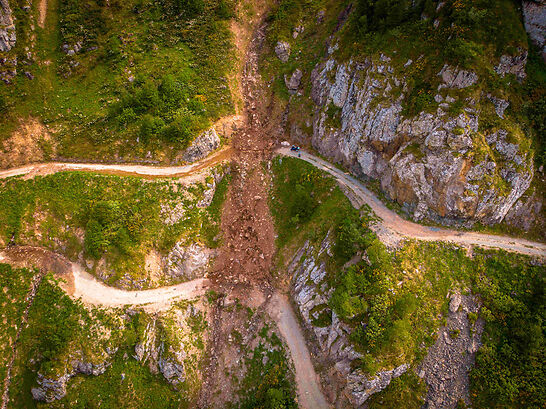
Subsurface condition experts, soil mechanic authorities, and foundation designers are all standard titles that refer to geotechnical engineers, professionals who ensure the long-term stability of various structures.
While designing slopes, foundations, and retaining walls, geotechnical professionals tend to rely heavily on self-conducted site visits and investigations instead of following a code-based design. This reliance often provides geotechnical professionals and project developers with a wealth of site-specific information applied during the subsurface design process and utilized throughout the construction phase.
During a foundation investigation, professional engineers oversee subsurface drilling, recovery and testing of soils, and in site-testing. All these operations help professionals analyze a host of soil mechanics, including porosity, weight, void-to-solid particle ratio, compressibility, permeability, maximum shear strength, deformations, and total bearing capacity.
If the project requires a deep foundation, professionals will use a cone penetration test to understand the sub-surface’s total amount of surface and end-bearing resistance.
Such investigations also help measure groundwater levels and the overall stability of natural or designed slopes. Findings from such geotechnical risk assessment investigation are noted in an in-depth log, later referred to by the engineer when creating the structure’s foundation and retaining walls. Such findings can help you better understand if you must treat the site’s soil to improve its overall stiffness, strength, and permeability before the designing and construction phase begins.
In general, geotechnical hazards refer to any earth movements that may throw off your building plans and foundation efforts. A shift in soil and groundwater can often significantly affect how a project is constructed. You may need to add additional mitigation and support to ensure long-term stability. A few examples of geotechnical hazards include:
These and several other geotechnical hazards may cause a major disruption to a construction project or cause significant damage after construction, as any shift in the ground may force the building to move in response.
Identifying geotechnical hazards is not just about assessing the site’s current situation; geotechnical engineers also consider any future movements and determine how weather, temperature, and infrastructure changes will affect the area in question.
Since you can find geotechnical hazards on any construction site, it is vital to conduct a thorough site evaluation before starting the construction project since accounting for such risks can help you save time and money. Contact the experts at G3Soilworks for more information.
Follow, engage, learn. Stop by our blog to see what’s happening at G3SoilWorks.
G3Soilworks – a full service geotechnical/ engineering geologic consulting firm serving clients since 2009 and delivering expert solutions with our highly experienced team and specialized consultants.
G3SoilWorks
350 Fischer Avenue Costa Mesa, CA 92626
Tel. 714.668.5600
E. info@g3soilworks.com